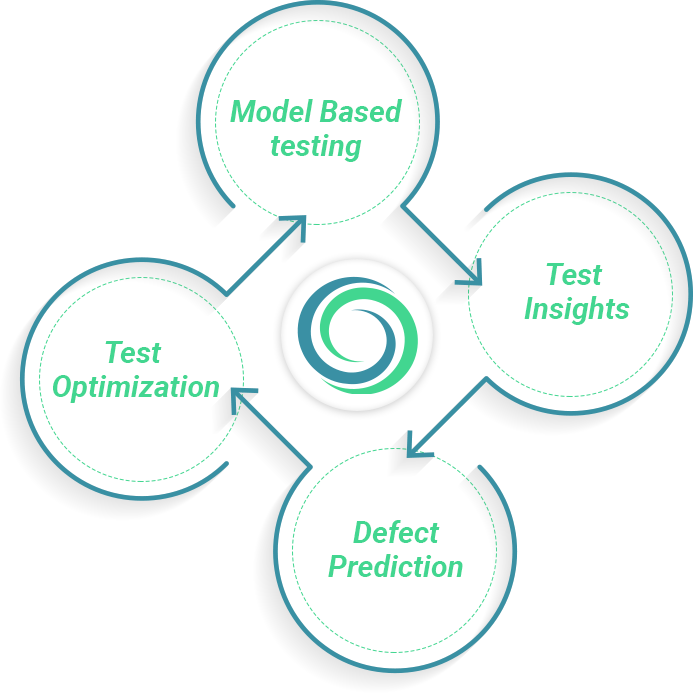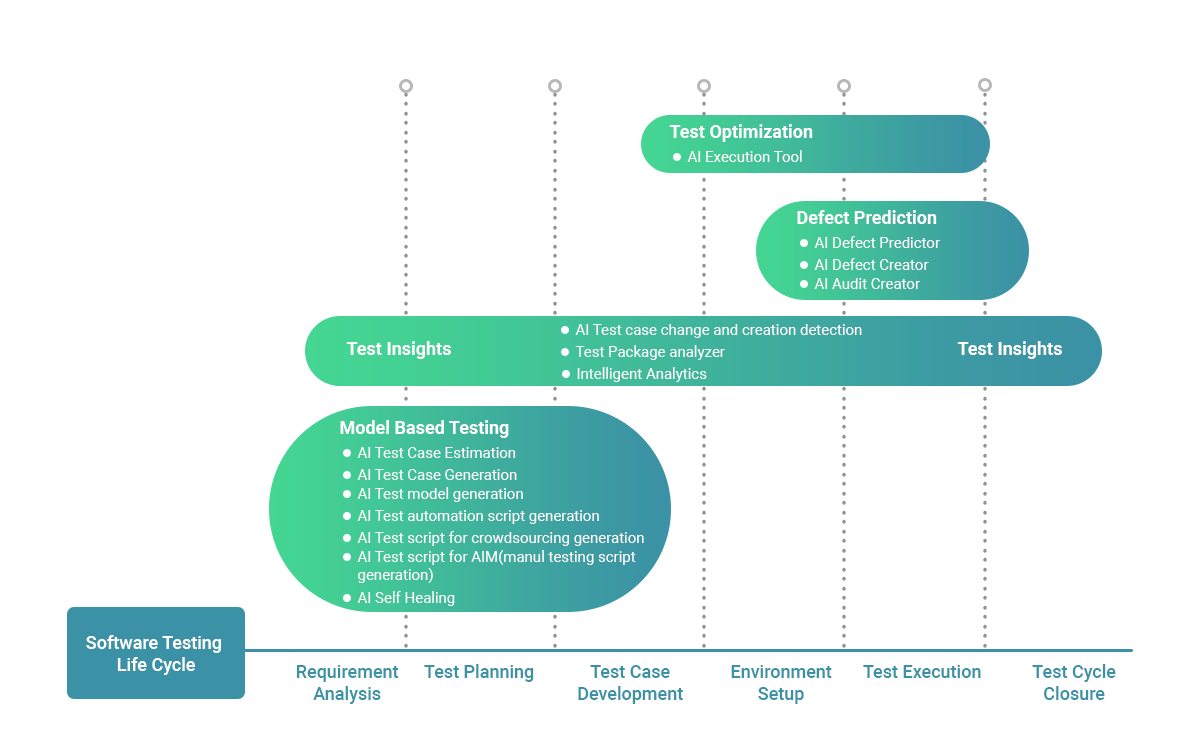Accelerate Success with AI-Powered Test Automation – Smarter, Faster, Flawless
Start free trialWhat is intelligent automation?
Intelligent Automation (IA) is transforming software testing by eliminating repetitive manual tasks through AI-powered test automation tools and scripts. This approach ensures greater accuracy, scalability, and faster test execution while significantly reducing effort and cost.
According to the World Quality Report 2023-24, 77% of organizations are now leveraging AI to enhance their quality assurance processes. AI-driven testing solutions optimize test case generation, detect issues early, and enable continuous testing, making software delivery faster and more reliable.
By 2027, it is projected that 80% of enterprises will have integrated AI-augmented testing tools into their workflows- up from just 15% in early 2023. The demand for intelligent automation continues to surge as businesses strive for efficiency and agility.
Next innovation in QA intelligent automation and productivity.

Why does it matter?
By working with application leaders to explore IA use cases, such as test optimization, defect prediction,
model-based testing, test data generation, and test insights, the team increases application testing agility.
Incorporating intelligent automation into application testing services for both new proposals and existing
contracts optimizes application testing costs. Applying intelligent automation provides an incredible
improvement in quality and an increase in application testing speed. An effective IA testing considers all the
changes due to bug fixes or introducing a new feature. Besides modifying and executing the affected test cases
and scripts (often referred to as healing) there has to be a service level guarantee that all possible scenarios
are covered. The cherry on the top will be if the time and cost are not affected much.
Webomates provides guaranteed regression testing of 24 hours for FULL services, 8 hours of Overnight services, and quick Smoke regression, which gets completed within 15 minutes to a maximum of 1 hour. Our test model ensures that all the relevant test cases are self-healed and retested to reflect any changes in the build release and provide a True Pass and True Failure report.

Scope of Intelligent Automation
Model-Based Testing: Generates test cases and test scripts from a model to expand automation coverage.
Test Data Generation: Generates synthetic test data automatically to increase testing QA and reliability and reduce the time needed to prepare test data.
Test Optimization: Recognizing repetitions and similarities in test case & test script records to optimize test case repositories. Cognitive technologies help remove duplicate test cases & scripts, optimize regression test suites, and analytics on test execution results improve test cases & scripts' strength. Machine learning can help optimize execution sequencing. This results in maintaining software QA earlier in the application life cycle, cutting time and effort out of the testing process, & recommend similar test cases to developers.
Defect Prediction: Identifies bugs early and includes machine learning to enhance the accuracy of future-defect classification. Defects are identified and automatically assigned to the correct team member using self-learning algorithms and intelligent classification techniques. Intelligent classification techniques organize specific defect sets into classes. Determine the root cause of defects and incidents, identify gaps in the design and coding areas, understand patterns of the defects that might occur in the future, ramp up or down your team, and cut costs.
Test Insights: AI-based bots generate actionable insights from testing cycles, performance testing analytics, thus comparing results with industry benchmarks to determine program-wide recommendations.
In this blog we talk about the state of intelligent automation in testing where we understand where to implement IA in each application testing phase and what use-cases to examine.
